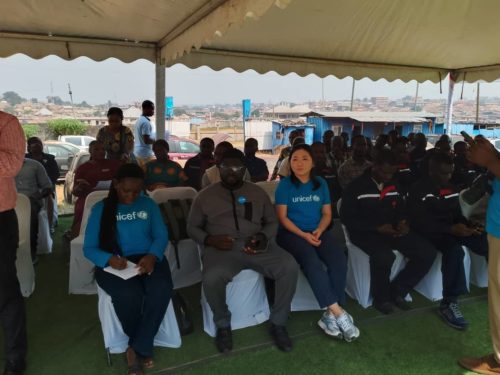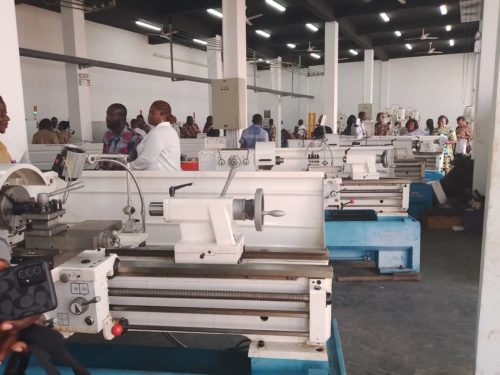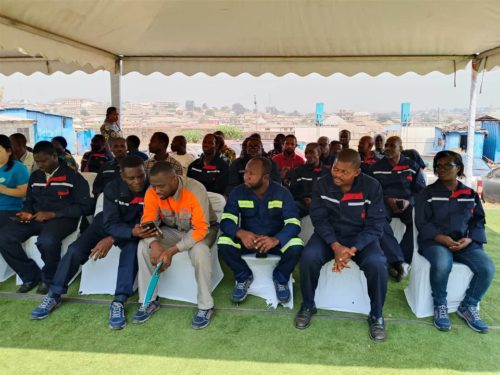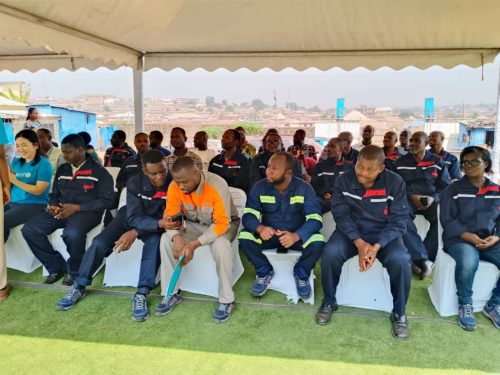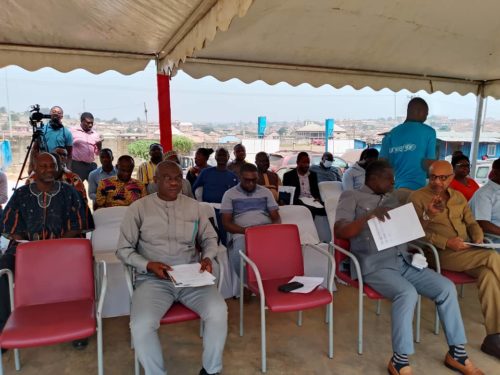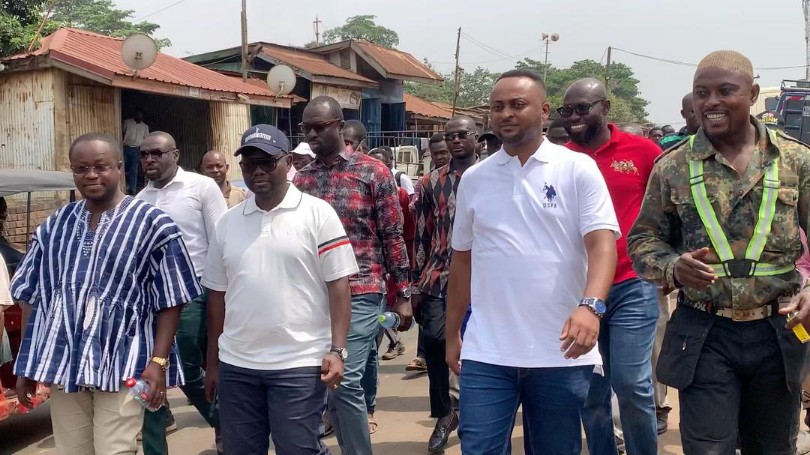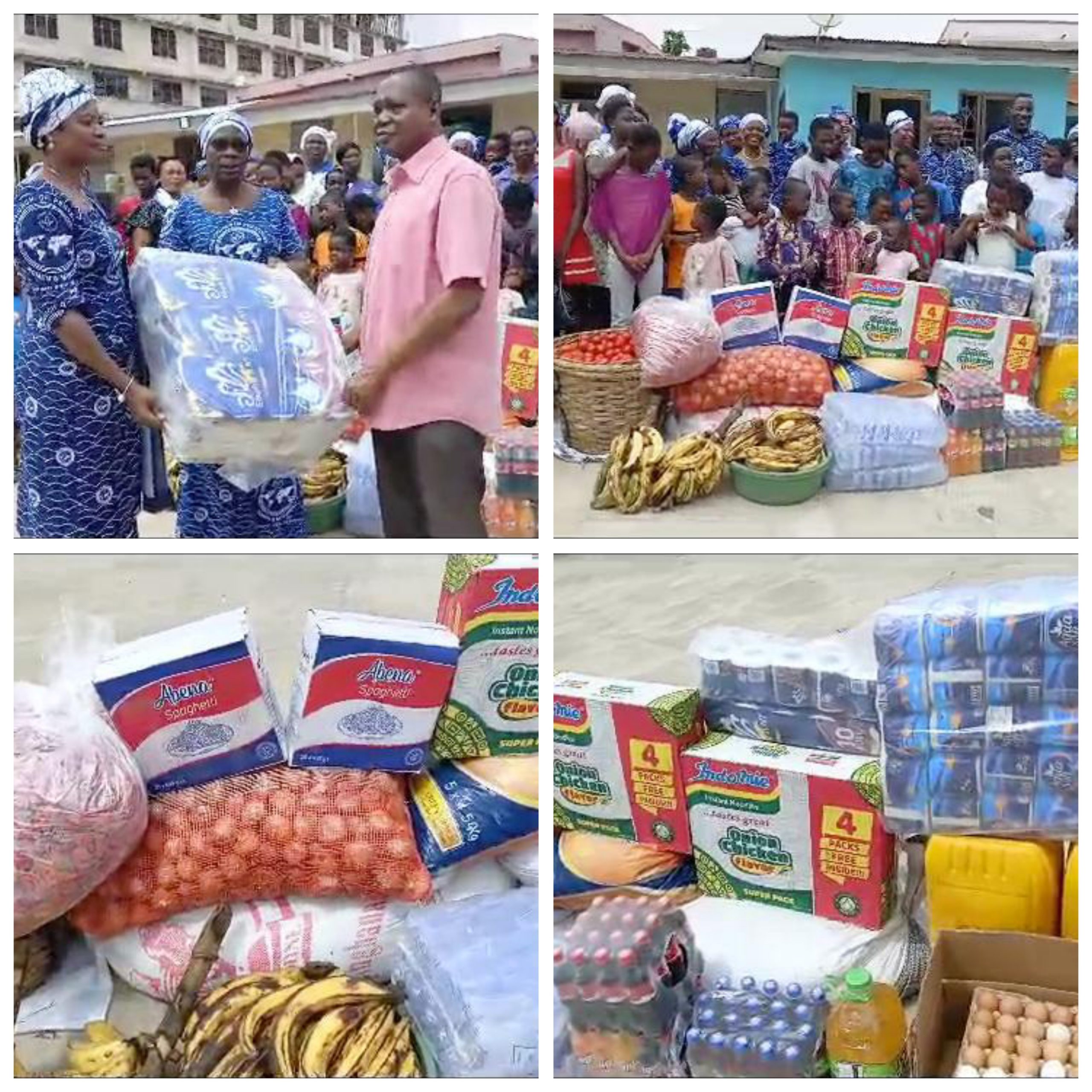REMARKS MR OSAMA MAKKAWI UNICEF GHANA REPRESENTATIVE

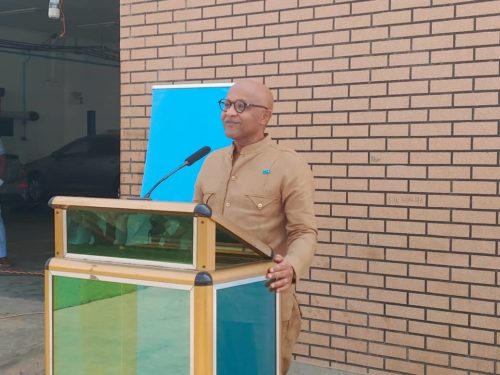
Mr. David Prah, Director General, Ghana TVET Services
Engr. Richard Addo-Gyamfi, Ashanti Regional TVET Services Director
National and Regional TVET Services Staff
The Media
Ladies and Gentlemen
It is a great honor to be here today, in collaboration with
the Ghana Technical Vocational Education and Training
Services (GTVETS), to mark two significant milestones:
the successful completion of the 5-week Computer
Numerical Control1 (CNC) Milling and Machining
training for teachers at Kumasi Technical Institute,
and the official launch of the Skills Supply and
Demand Analysis study in the Ashanti Region.
I would like to start by expressing my deepest
appreciation to the Ghana TVET Services for its strong
partnership with UNICEF.
This collaboration is important to see a more fit for
purpose TVET education and one that respond to the 21st
century requirement.
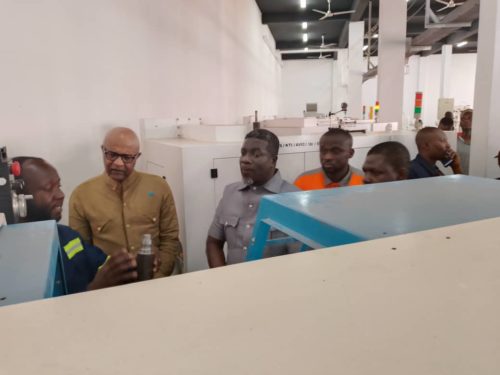
In front of us is a great opportunity, and I am determined
to support making the best out of it.
I count on this partnership to reach the poorest in Ghana
and make the TVET an opportunity to break the vicious
circle of poverty that has been perpetuating in these
communities and families for generations.
Ghana, together we can make it- it needs our:
• commitment,
hard work,
collaboration,
and determination – tell me – don’t we have them all?
Currently and despite of the positive efforts made by the
government, challenges such as youth unemployment and
underemployment persist,
largely due to a growing mismatch between the skills
taught in schools and those demanded by the job market.
Barriers like:
• insufficient technical and soft skills,
limited access to training,
. and literacy gaps continue to hinder young people
from securing meaningful employment.
Other structural challenges are around:
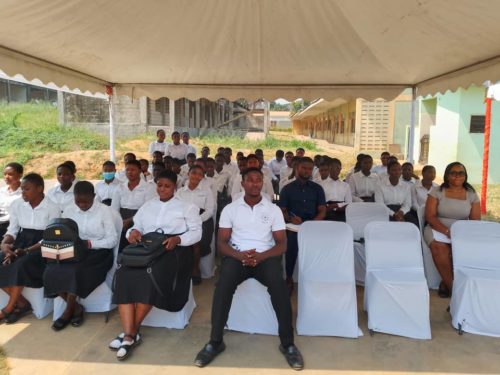
coordination,
insufficient evidence,
inadequate public and private sector partnership,
gender inequality,
• and lack of career quidance – incentives to innovate,
entrepreneurial skills, the white-collar centric
education, etc.
these challenges and mindsets must change now to adapt
to the world’s fast changing realities around us.
We – planners and leaders, must stay realistic and
relevant!
Young people in Ghana, have just made it very clear and
spoke up during the recent elections – they were loud
and clear!
Ladies and gentlemen,
Addressing these challenges requires a strong and well-
structured TVET system – one that can deliver skills that
young people need to succeed.
Colleagues,
Please allow me to reiterate the obvious for good reasons,
> As you all know, the majority of Ghana’s demographic
configuration consist of young people below the age
of 25 yrs. – they represent over 56 percent of the
total population,
Not only that, but this demographic majority is still
growing- at a rate of 2.5 percent each year.
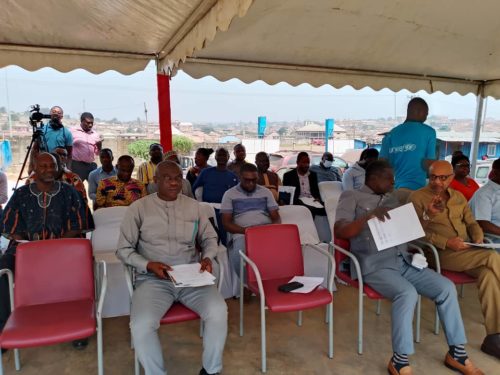
Ghana – the choices for today and the future are clear and
simple!
It is:
> wise,
> smart,
and an imperative to invest in young people,
> and in particularly in the most vulnerable among them,
And for me, TVET represent the best pathway to do so!
In April this year, I visited the Ashanti Region and had the
opportunity to engage with key stakeholders and visited
both public and private TVET institutions, I came here to:
• KTI,
• lalso visited Afoako TVET,
and Prefos Private TVET.
The insights gained from these visits reflected many of
the challenges I have outlined, including:
Disparities between urban and rural TVET institutions,
The challenge of soft skills development,
The stigmatization of TVET as a career path,
Capacity challenges among teachers regarding
modern machinery,
Inclusivity gaps, including gender stereotyping in
TVET programs,
Coordination and lack of structured partnerships with
the private sector,
Mismatch between TVET curricula and community
needs – meaning the need to localize TVET
institutions to address local communities needs.
These challenges extend beyond the Ashanti Region,
manifesting the broader challenges within the entire TVET
sector.
And that is why UNICEF, in collaboration with key partners,
is actively supporting to:
>generate evidence and data to support policy
development and planning,
> develop a National Career Guidance and Counseling
Policy,
> strengthen TVET coordination,
> and promote Safe TVET practices to ensure inclusive
and accessible training for all learners.
Today’s event underscores UNICEF’s commitment to
addressing these challenges in close collaboration with
the Government of Ghana and other partners, aiming to
improve TVET service delivery across the country.
In closing, I would like to congratulate all the trainees who
have successfully completed their 5-week course.
Ayekoo!

I would also like to highlight the importance of the Skills
Supply and Demand Analysis,
which wll play a crucial role in assessing and mapping the
availability and demand for technical skills in the Ashanti
Region, providing critical insights for future trainings and
workforce development efforts.
We hope that, with continued support from Ghana TVET
Services and adequate funding,
these initiatives will be scaled and rolled out across TVET
institutions nationwide, helping resolve the systemic
challenges in the sector.
Ladies and gentlemen,
l am very optimistic,
and believe me, together we will make it,
because we owe this to:
Our young generation,
to Ghana’s bright future,
and to ourselves today.
Let us never rest until every young person sees a clear
future path!
I thank you again for providing me with the opportunity to
speak to you and rest assured of UNICEF’s unwavering
Commitment!
Medaase,
